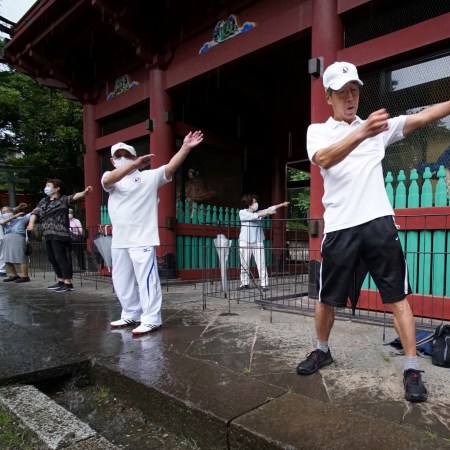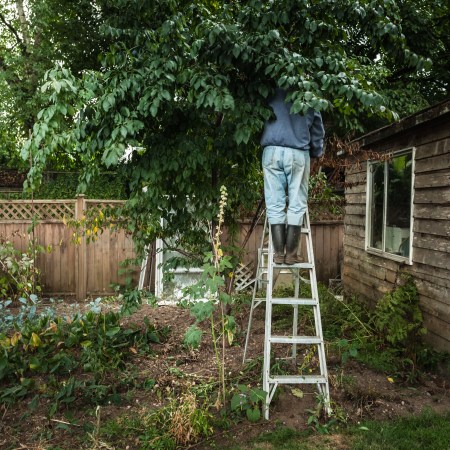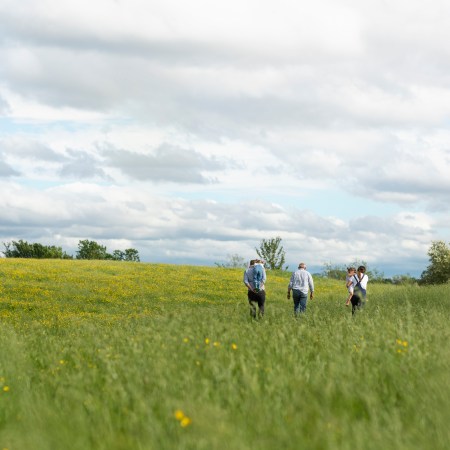Most of us consider aging to be as inevitable as death itself. We’ve seen loved ones go through it, and we’ve felt its effects within our own bodies and brains. It’s not that we don’t fear it. Who wants to waste away? But we accept, because there doesn’t seem to be any choice, that on our way out the door we’ll slowly lose our self-awareness, wit, motor function and memories.
There are scientists out there, however, who don’t view aging as inevitable. They view it as a disease. And as with any other headline-grabbing disease — AIDs, cancer, heart disease, cystic fibrosis, etc. — they’re actively researching a cure.
One of the more intriguing labs working on this mandate is biotechnology venture Altos, launched in January of this year, and based in three locales: the Bay Area, San Diego and the United Kingdom’s Cambridge. Unconfirmed reports (the most prominent from British newspaper The Times) suggest that Amazon CEO Jeff Bezos, worth $167.7 billion as of this morning, is funding the research.
In a recent episode of Super Pumped, the Showtime show that charts the rise and fall of Uber CEO Travis Kalanick, there’s a scene where Kalanick (played by Joseph Gordon-Levitt) scoffs at an air hangar populated with the personal jets of various Silicon Valley executives. He doesn’t want a personal jet. He wants the entire air hangar. Kalanick invokes “Gates,” “Elon” and “Bezos,” calling them “gods.”
Is Altos Bezos’ bid for apotheosis? The man’s already been to space. Perhaps immortality is his next frontier of choice. For the record, Altos’ publicly stated aim, outlined in its mission statement, is to restore cell health and resilience, with the goal of reversing disease to transform medicine. Its team of scientists, which is among the very best in the world (Altos poached four Nobel laureates), rejects the Bezos-supervillian narrative.
In a recent interview with Spanish newspaper El País, developmental biologist Juan Carlos Izpisua said of the speculation: “[It] is simply not true. Our interest is in advancing in this area of knowledge and opening the field as wide as possible, so that, over time, everyone can benefit.” Altos Labs is secretive, but with three locations, an astounding starter budget of $3 billion and already-eager attention from the press, perhaps it’s unlikely that it will keep its secrets to itself.
Besides, Izpisua has already been forthcoming on some of Altos’ planned research, which he claims could cure aging within the next 20 years. He said to El País: “I am convinced that within two decades we will have tools that not only treat symptoms, but also can predict, prevent and treat diseases and aging through cellular rejuvenation. Our end goal is to find new forms of helping everyone to slow or even reverse the processes that lead to disease.”
Cellular reprogramming is an intrepid method of “turning back the clock” on cells. It is the undisputed future of biotechnology. Before embryonic cells specialize to form specific tissues or organs, they have the capability to turn into any kind of cell. Over the last 15 years, thanks to research from Izpisua and Shinya Yamanaka (who won the 2012 Nobel Prize for medicine), researchers have figured out how to revert aging adult cells back to this youthful form.
It’s degeneration to regeneration, basically, and the possibilities are endless. Some of the risk factors — like the possibility of tumor development — have even been mitigated in recent years; for a study recently published in Nature Aging, Izpisua and his team rejuvenated cells in middle-aged mice, which extended their lifespan by an equivalent of 35 human years.
Middle-aged mice are a far cry from middle-aged human beings, obviously, but middle-aged monkeys aren’t. Simians are next in line, and will likely be front and center in the research at Altos. (As will RNA messenger technology, for the purpose of reprogramming the cells, which most of us are now casually familiar with now, courtesy of the COVID-19 vaccine.) As for your future, or Jeff Bezos’s future, don’t bank on immortality just yet. Izpisua stresses that the goal isn’t to discover the Fountain of Youth, but to make the years we do have worth living.
“The idea behind our investigations is not so that human beings live 100 or 1,000 years more. If we are able to prolong life without improving the quality of these years, not only would it be morally questionable, but also I would question what purpose it would serve,” Izpisua told El País. “Our main goal is to enable people to have a healthier life for a longer period of time and to reverse illness in patients of all ages.”
Thanks for reading InsideHook. Sign up for our daily newsletter and be in the know.


















